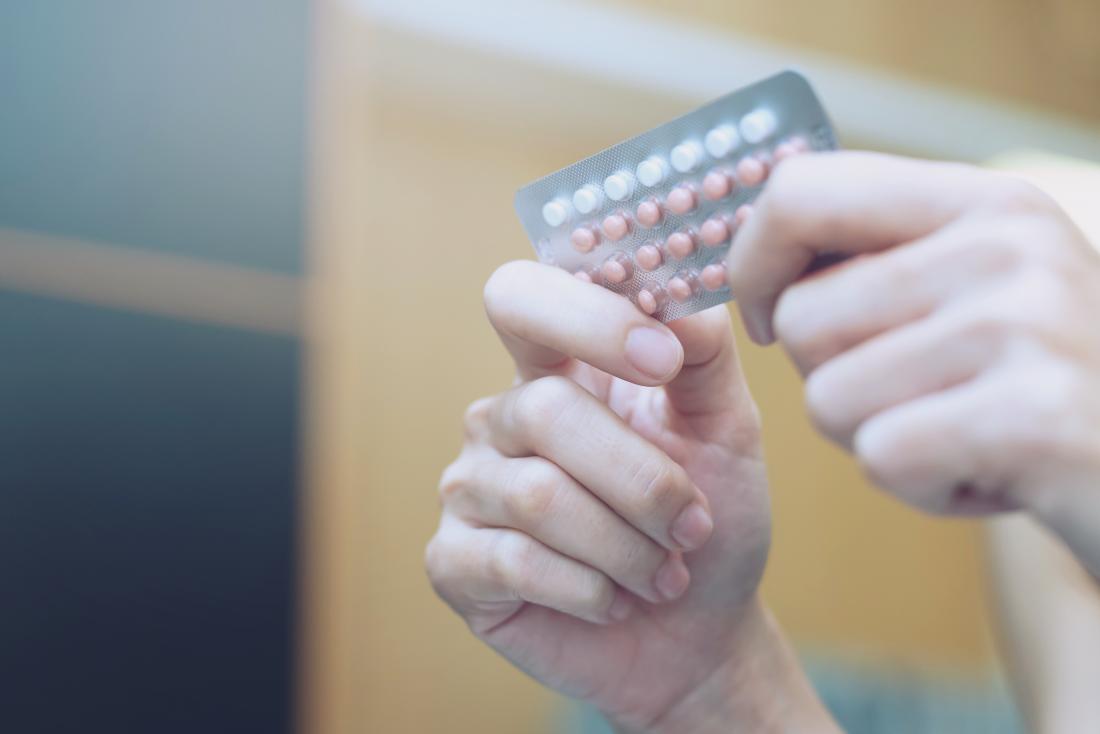There are no guaranteed ways to make a period arrive immediately or within a day or two. However, around the time their period is due, a person may find that doing exercise, trying relaxation methods, or having an orgasm could bring on the period a little faster.
People can also take control of their menstrual cycle by using certain hormonal contraceptives.
The internet also offers many other solutions for inducing a period, such as eating pineapple or fenugreek, but there is no evidence that these methods work.
In this article, we look at some of the methods people can try to induce a period. We also discuss which methods have no scientific backing and possible risks.
Methods for inducing a period

Hormonal birth control can change a menstrual cycle.
The only reliable method for changing a menstrual cycle is by using hormonal birth control. However, diet, exercise, and stress reduction may also help.
There are no ways to induce a first-ever period. According to the American College of Obstetricians and Gynecologists (ACOG), a person’s first period will typically arrive between the ages of 12 and 13. ACOG also estimate that 98 percent of females will have a period by the time they are 15.
The following sections discuss methods that may help induce a period in someone who has already had a menstrual period.
Hormonal birth control
Using hormonal contraception, such as birth control pills or the ring, is the only reliable method of taking control of the menstrual cycle.
The combined pill, which contains both estrogen and progestin, is the most effective method for controlling periods. People take hormonal pills for 21 days, then stop taking them or take a dummy pill for 7 days. They have their period in these 7 days.
People can stop taking the hormonal pill early to make their period come earlier.
Note that if a person does not take their birth control pills as their doctor prescribes, they may be less reliable in terms of preventing pregnancy.
People can also skip their period using birth control, which doctors generally consider safe. Learn about the safety of skipping periods with birth control here.
Exercise
Gentle exercise may loosen the muscles and help a period come a little faster. However, the evidence for this method is anecdotal, and research has not confirmed that it works.
Some people have irregular periods because of vigorous exercise regimes. Exercising in moderation could help to restore the hormones needed to bring back a regular menstrual cycle.
Relaxation
Scientific research shows that high levels of stress have links to menstrual irregularities.
Finding ways to relax and de-stress may help, particularly if a person finds that their period is late or absent due to stress.
Gentle yoga, journaling, meditation, and time with friends and loved ones can all help to keep stress levels down.
Orgasm
Believe it or not, sex and orgasm could also help to bring on a period.
The combination of the hormones produced during sexual activity and uterine contractions during orgasm may help to dilate the cervix and help the uterus begin to shed its lining.
Diet and weight
Changes in a person’s body weight can affect their period. Low body weight can cause irregular periods or may even cause periods to stop entirely. This is because the body needs some fat to produce hormones related to menstruation.
Having a high body weight or experiencing a sudden change in weight can also cause irregular menstrual cycles.
Some people may notice that certain foods can delay or speed up their period and affect how heavy the flow is and its duration. This may be due to the relative fat, protein, and other nutrient content in foods.
Extreme calorie restriction or excessive exercise can both have an impact on the reproductive hormones and affect ovulation.
Other methods
Many people use natural remedies to try and induce a period. There is no scientific evidence that these methods work, but there are few risks associated with trying them.
Natural remedies that some people use to try to bring on a period include:
Pineapple

Pineapple is rich in bromelain, an enzyme that some believe may affect estrogen and other hormones.
Research suggests that bromelain may help reduce inflammation, which means it could help with some causes of irregular periods that involve inflammation.
However, there is no research to say that consuming pineapple or bromelain supplements will induce a period.
Vitamin C
Some people believe that eating large amounts of vitamin C can help to bring on a period. This may be due to possible effects vitamin C has on estrogen and progesterone levels, which are the hormones responsible for the timing of the menstrual cycle.
There is no scientific evidence to support this, but increasing dietary intake of vitamin C is not harmful.
To increase vitamin C intake, try eating:
- green leafy vegetables, such as spinach and kale
- citrus fruits, such as oranges and grapefruits
- cruciferous vegetables, such as broccoli and Brussels sprouts
Herbs
Emmenagogues are herbs that some people believe can bring on a menstrual period. People sometimes use chamomile, parsley, cinnamon, rosemary, sage, and oregano for this purpose.
Some also say that pomegranate, celery, papaya, fenugreek, and chicory are emmenagogues.
Risks
Most methods discussed above are safe and should not present any risk to healthy adults.
It is essential that people buy any herbal supplements from a reputable source because the Food and Drug Administration (FDA) do not regulate herbal products and supplements. Also, anyone with a known or suspected allergy to any of the herbs, foods, or supplements should avoid taking them.
Hormonal birth control can cause side effects and may not be right for everybody. Though rare, the birth control pill can increase a person’s risk of developing a blood clot or having a stroke or heart attack.
People who smoke or who are above the age of 35 are at higher risk for complications from the pill. When considering hormonal birth control, speak with a doctor about individual risk factors.
Learn more about the possible side effects of the birth control pill here.
When to see a doctor
According to some sources, an average menstrual cycle lasts for 28 days, though a typical range is between 21 and 35 days.
A person should see their doctor if they regularly miss a period or if their cycle is very irregular. Tell a doctor about any significant changes in menstruation.
Anyone taking the birth control pill should call their doctor immediately or seek emergency care if they experience the following symptoms:
- severe abdominal pain
- severe headache
- chest pain or shortness of breath
- pain, redness, or swelling in the calf
Finally, people who are using hormonal birth control to manipulate their periods should speak with the doctor about how to do it with their particular form of birth control, as the instructions could vary from form to form, and even pill to pill.
Summary
Through traditional to modern medicine, people have tried many methods to induce a period.
The only reliable method for controlling periods is using hormonal birth control. However, people may be able to make their period come a little faster using diet, exercise, and relaxation methods.
People swear by other methods as well, though there is not enough research to determine whether or not they actually work. Make sure to speak to the doctor about any concerns or questions about inducing a period.

